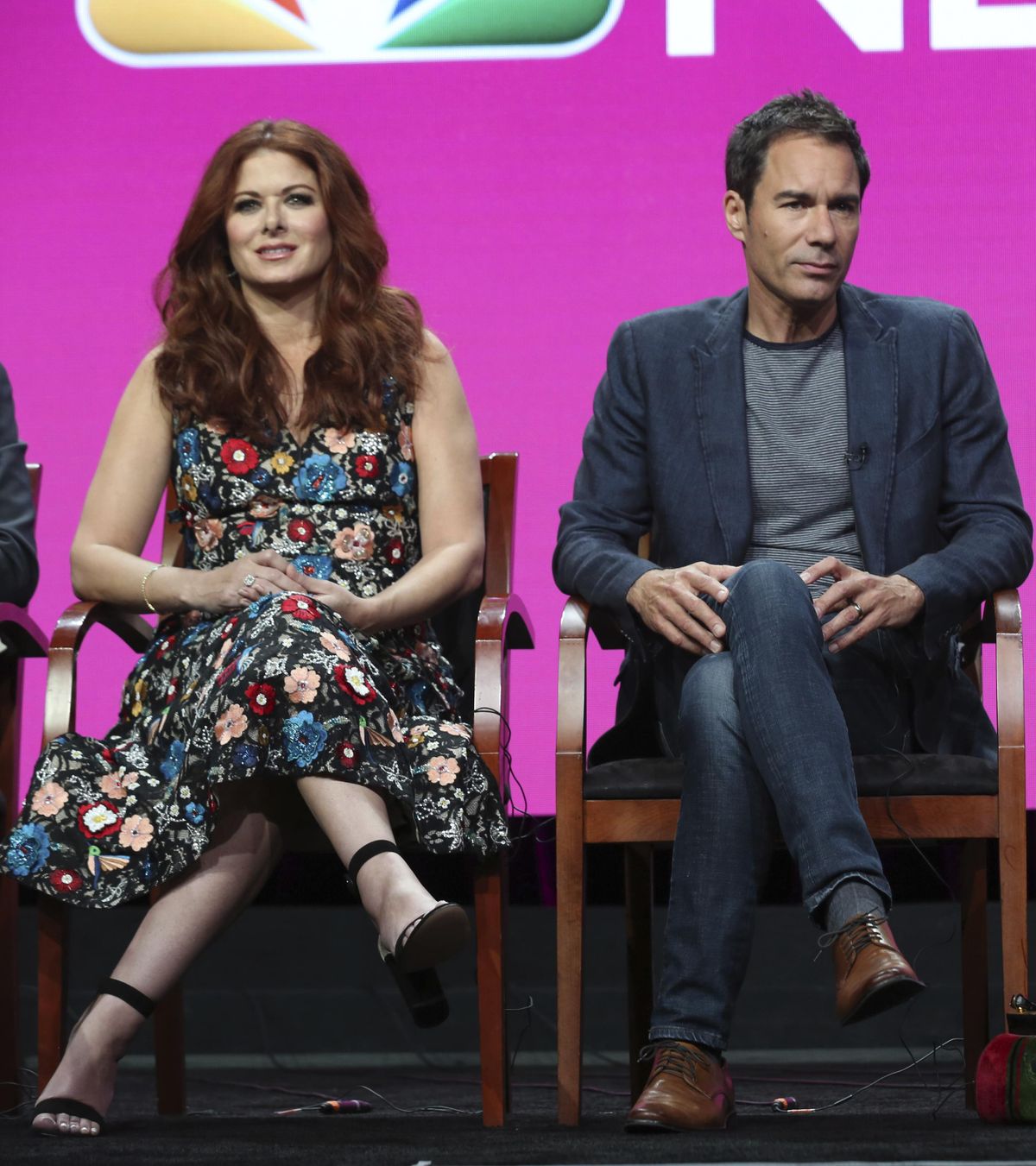‘Will & Grace’ will navigate new era

Former Vice President Joe Biden famously credited “Will & Grace” with helping to transform his views on same-sex marriage.
The groundbreaking sitcom, which aired for eight seasons on NBC from 1998 to 2006, returns to television this fall after more than a decade – a period that has seen enormous progress, as well as continued challenges, for the LGBTQ community.
Pop culture has also evolved in that time, with depictions of gay men and women as well as transgender people becoming increasingly commonplace.
So can a show from the “don’t ask, don’t tell” era feel relevant at a time when same-sex marriage is legal in all 50 states?
The short answer is yes, according to the cast and creators of the series, who spoke to reporters last week at the Television Critics Association summer press tour.
“When we started, it was revolutionary to have two gay characters,” said star Debra Messing. “What we were able to address at the time was ‘LGB.’ We stopped at ‘B.’ My hope now is that we can finish the alphabet.”
Addressing a question about whether the show’s depiction of gay culture might seem dated, co-creator Max Mutchnick said, “We’re not going to be writing the show as if it’s 1996 or ’97. We will be writing the show as if these four are living in 2017. And we have fantastic young talent in that writers’ room keeping us on our toes and fresh.”
And, as Eric McCormack noted, the Trump administration is also giving the writers plenty to work with, such as the recently announced ban on transgender people in the military.
“I think the fight goes on and will go on for a long time,” said costar Sean Hayes.
The political divide affecting the country will make its way into the fictional world of “Will & Grace.” As revealed in the election-themed video released in the fall, Karen (Megan Mullally) is a Trump supporter, a fact that horrifies her friends.
“One of the things we all have to deal with is realizing that some of the people around us didn’t vote for who we voted for and they might be friends. How are we maintaining that friendship?” said McCormack. “That is not inherently about the politics of today or yesterday. It’s about the politics of friendship and how you navigate that.”
For Messing, who campaigned for Hillary Clinton, returning to “Will & Grace” “felt like coming home” during a “confusing time.”
“To come back together and to laugh out loud and to be surprised by one another and to have new stories to tell. … It’s just a beautiful, crazy thing,” she said.
And while the series will strive for timeliness, the ultimate goal will be to entertain viewers. Or, as Messing put it, to “maybe make them pee a little bit on the couch.”
They also addressed the thorny issue of how the revival would move forward considering the finale of the original, which saw Will and Grace drift apart, then reunite many years later, among other dramatic changes.
Or, rather, they won’t: The revival will essentially ignore those events because, as Mutchnick explained, “We never would have gone in that direction if we weren’t ending the show.”
Even before its return to prime time on Sept. 28 after an 11-year absence, NBC Entertainment Chairman Bob Greenblatt announced that the network has already ordered a 13-episode second season.
Moreover, the first season has been extended by four episodes, for a total of 16, all directed by James Burrows, who directed every episode of the show’s initial eight-year run.
Mutchnick was equally candid when asked a question about working with the network again following a contentious lawsuit over the series rights.
“Bob Greenblatt’s NBC is very different from Jeff Zucker’s NBC,” he said, referring to the previous head of the network. “We are very, very happy to be a part of Bob Greenblatt’s NBC.”